Heeyoung Kim
Uncertainty Estimation by Density Aware Evidential Deep Learning
Sep 13, 2024Abstract:Evidential deep learning (EDL) has shown remarkable success in uncertainty estimation. However, there is still room for improvement, particularly in out-of-distribution (OOD) detection and classification tasks. The limited OOD detection performance of EDL arises from its inability to reflect the distance between the testing example and training data when quantifying uncertainty, while its limited classification performance stems from its parameterization of the concentration parameters. To address these limitations, we propose a novel method called Density Aware Evidential Deep Learning (DAEDL). DAEDL integrates the feature space density of the testing example with the output of EDL during the prediction stage, while using a novel parameterization that resolves the issues in the conventional parameterization. We prove that DAEDL enjoys a number of favorable theoretical properties. DAEDL demonstrates state-of-the-art performance across diverse downstream tasks related to uncertainty estimation and classification
CDMAD: Class-Distribution-Mismatch-Aware Debiasing for Class-Imbalanced Semi-Supervised Learning
Mar 15, 2024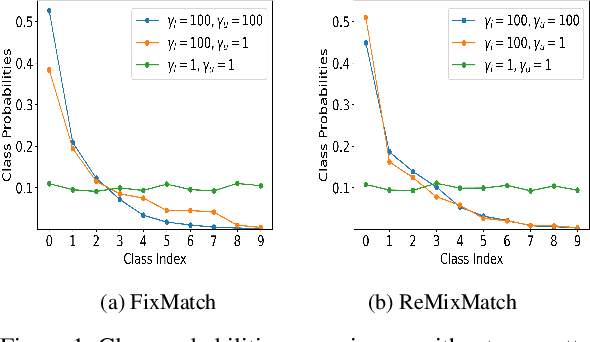
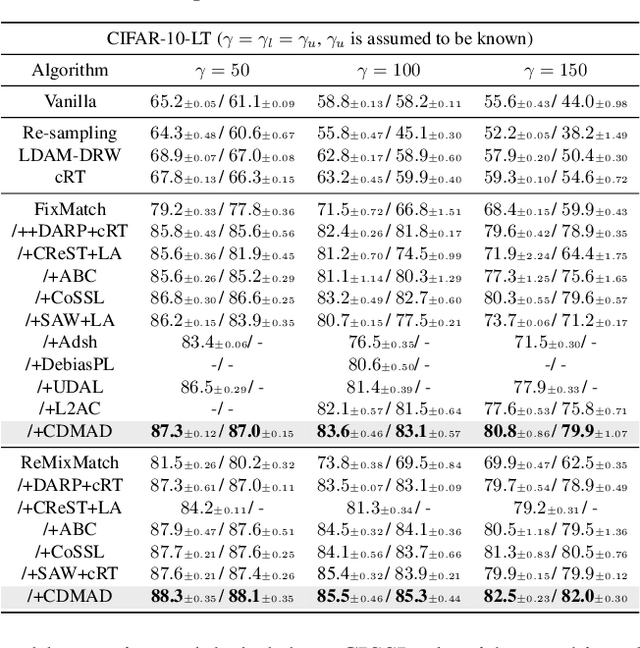
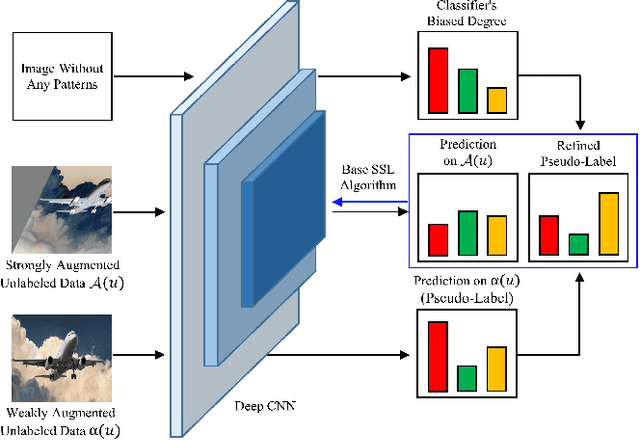
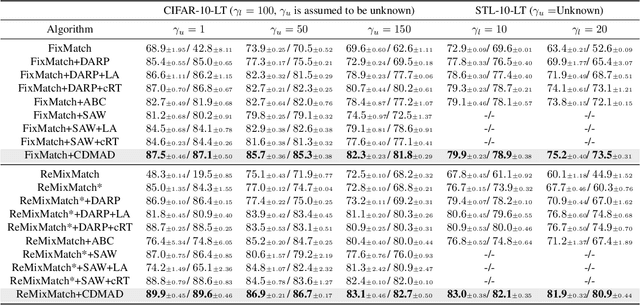
Abstract:Pseudo-label-based semi-supervised learning (SSL) algorithms trained on a class-imbalanced set face two cascading challenges: 1) Classifiers tend to be biased towards majority classes, and 2) Biased pseudo-labels are used for training. It is difficult to appropriately re-balance the classifiers in SSL because the class distribution of an unlabeled set is often unknown and could be mismatched with that of a labeled set. We propose a novel class-imbalanced SSL algorithm called class-distribution-mismatch-aware debiasing (CDMAD). For each iteration of training, CDMAD first assesses the classifier's biased degree towards each class by calculating the logits on an image without any patterns (e.g., solid color image), which can be considered irrelevant to the training set. CDMAD then refines biased pseudo-labels of the base SSL algorithm by ensuring the classifier's neutrality. CDMAD uses these refined pseudo-labels during the training of the base SSL algorithm to improve the quality of the representations. In the test phase, CDMAD similarly refines biased class predictions on test samples. CDMAD can be seen as an extension of post-hoc logit adjustment to address a challenge of incorporating the unknown class distribution of the unlabeled set for re-balancing the biased classifier under class distribution mismatch. CDMAD ensures Fisher consistency for the balanced error. Extensive experiments verify the effectiveness of CDMAD.
ABC: Auxiliary Balanced Classifier for Class-imbalanced Semi-supervised Learning
Oct 20, 2021
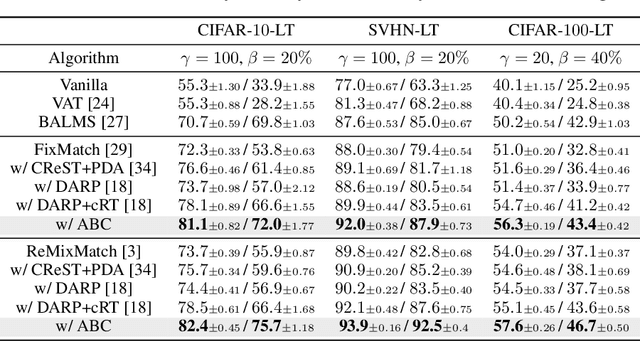
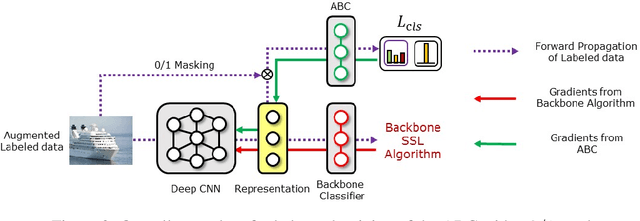

Abstract:Existing semi-supervised learning (SSL) algorithms typically assume class-balanced datasets, although the class distributions of many real-world datasets are imbalanced. In general, classifiers trained on a class-imbalanced dataset are biased toward the majority classes. This issue becomes more problematic for SSL algorithms because they utilize the biased prediction of unlabeled data for training. However, traditional class-imbalanced learning techniques, which are designed for labeled data, cannot be readily combined with SSL algorithms. We propose a scalable class-imbalanced SSL algorithm that can effectively use unlabeled data, while mitigating class imbalance by introducing an auxiliary balanced classifier (ABC) of a single layer, which is attached to a representation layer of an existing SSL algorithm. The ABC is trained with a class-balanced loss of a minibatch, while using high-quality representations learned from all data points in the minibatch using the backbone SSL algorithm to avoid overfitting and information loss.Moreover, we use consistency regularization, a recent SSL technique for utilizing unlabeled data in a modified way, to train the ABC to be balanced among the classes by selecting unlabeled data with the same probability for each class. The proposed algorithm achieves state-of-the-art performance in various class-imbalanced SSL experiments using four benchmark datasets.
 Add to Chrome
Add to Chrome Add to Firefox
Add to Firefox Add to Edge
Add to Edge